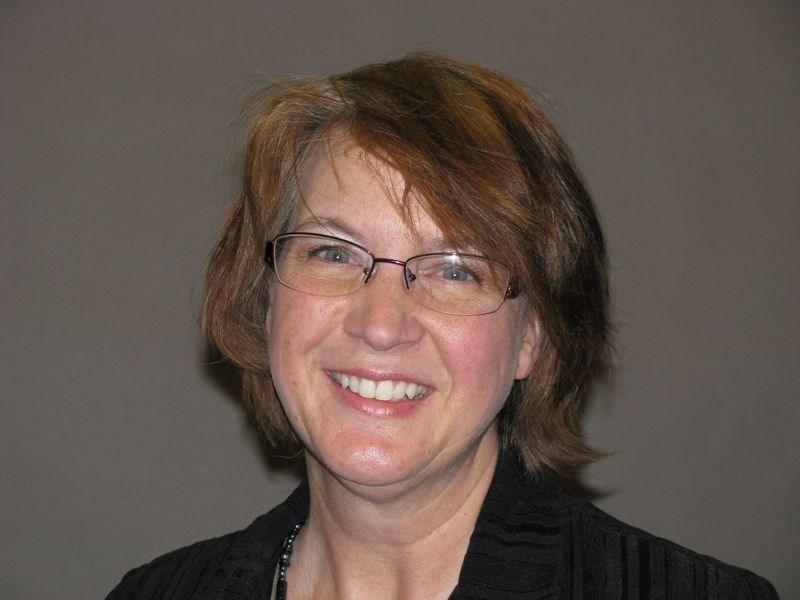Heidi Redl, the Green Party candidate in Cariboo-Prince George, describes herself as a cattle rancher first and foremost.
Born and raised in the Cariboo, the 48-year-old mother of three now grown children, earned a double-major in German and Russian at the University of Victoria before she and husband Tom moved back to operate an 800-hectare ranch 40 kilometres east of Williams Lake.
They make a point of raising their beef the natural way, grass fed with as few antibiotics as possible and sell their product directly to consumers at farmers markets.
"I would probably be the only candidate on the campaign trail who often drives around with frozen beef in the trunk of her car," said Redl.
She has also been a researcher and for years she wrote a column for Canadian Cowboy Country magazine and for a couple of years was on the board of directors for the Pacific National Exhibition.
Redl decided to run for the Greens two years ago in part to ensure someone living in the constituency would be the candidate and in part because of concern over the Taseko's Prosperity gold and copper mine proposal. But Redl stresses she's no radical environmentalist.
"I'm very concerned that we protect the environment," she said. "But also having been a cattle rancher and raised a family, I know we have to have a good economy so it has to be a careful balance.
"I live 25 miles out of town. I'm not going to hop on a bicycle and ride into town whenever I need something but I will drive the most fuel-efficient car I can afford."
Redl said she would support the mine if it won aboriginal support.
Affable, soft-spoken and with a patient demeanour, Redl walks with a limp due to multiple sclerosis. Just a year ago, she needed a cane but went overseas to get stent surgery to open up the arteries in her neck.
What are your top three priorities for your riding?
1. Jobs and the economy
Redl believes a balance can be found between a strong economy and good environmental stewardship, even in a resource-based economy like north-central B.C.'s. She said agreements that keep loggers out of sensitive areas and environmentalists out of forest companies hair have been a good step and supports companies who reach out to aboriginals while trying to establish developments in First Nations' territories.
2. Health care
Given her multiple sclerosis, health care is a particularly personal issue for Redl.
"I hated the fact that I had to go out of country to have a routine procedure done because it's not allowed in Canada," she said.
More generally, it can be "pretty darned hard" to get a doctor's appointment sometimes and Redl said more doctors and nurses need to be trained for rural communities through University of Northern British Columbia.
3. The environment
This relates back to jobs and the economy for Redl, who said mining is a tough issue because of the economic benefits such projects bring but also the damage they can do to the land and lakes. Since the federal government rejected its first proposal, Taseko has come back with an alternative proposal that's more expensive but doesn't involve destruction of Fish Lake, Redl noted.
Anything that encourages tourism is a good thing in Redl's opinion.
"There are Europeans who are dying to get over here with their money to have a holiday in the mountains and the trees and the grizzly bears," she said. "Tourism is inherently green, I think."
Our issues
1. Do you support Enbridge's $5.5-billion Northern Gateway oil pipeline? Why or why not?
"No," said Redl. "That oil comes from the tar sands and I really have an issue, as an environmentalist, with the tar sands.
"I don't like the thought either of the Douglas channel being harmed and I'm worried about the increased tanker traffic in that channel."
2. Do you think Ottawa should provide more funding support to municipalities, for example, to help fix roads? Why or why not?
"I just don't know and I'm not ashamed to say it," she said. "I'm not going to lie to you, I'm not going to guess."
Full marks for honesty.
3. A 10-year federal health care transfer deal to the provinces ends in 2014. Should the provinces get more money in a renewed deal? Why or why not? If yes, how would you pay for it?
Redl called health care a definite priority and said the Greens advocate higher taxes on polluters which could go towards such cost. Pollution is a health concern, she noted.
The government could save money, she added, by spending much less on advertising to promote their economic stimulus projects. And Redl said getting rid of the debt will free up more money for health care.



